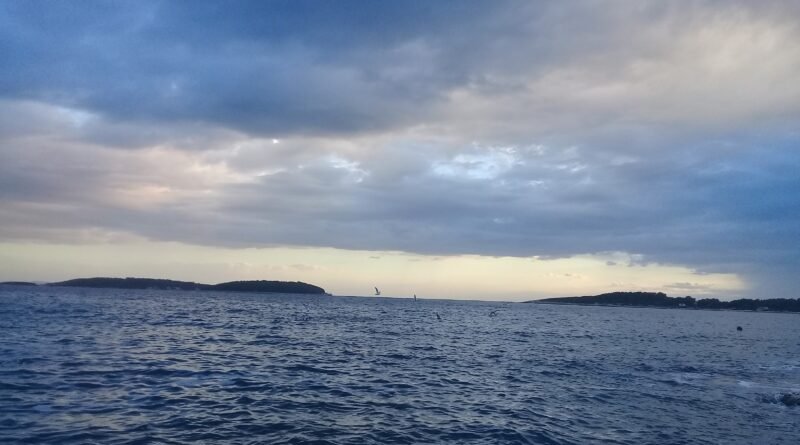Domestic Fleets Need More Oversight to Tackle Illegal Fishing
The Port State Measures Agreement (PSMA) is the first international agreement binding on all signatory countries and specifically deals with IUU fishing – illegal, unreported, and unregulated fishing. It entered into force in 2016, and currently, 84 countries have signed it. The goal is to prevent fishing boats that fish illegally from using ports to land fish. In a designated port, inspectors check the vessel and verify whether the catch is legal; this is done, for example, by reviewing the ship’s documents and inspecting the catch. This is important because it reduces illegal fishing, which helps protect biodiversity and prevents illegally caught fish from ending up on the market.
According to the data in West Africa alone, IUU fishing is estimated to cause annual economic losses ranging from $2.3 billion to $9.4 billion. A 2022 study, “Revealing global risks of labor abuse and illegal, unreported, and unregulated fishing,” examined the global risks of labor abuse and IUU fishing, further emphasizing that addressing illegal fishing requires coordinated action by multiple actors across various activities.
A new study, “Leveraging port state measures to combat illegal, unreported, and unregulated fishing,” identified areas where additional attention is needed to make the measures as effective as possible. Using satellite data, the researchers analyzed how the PSMA influenced vessel behavior in the open sea, as well as opportunities for further strengthening the agreement.
“The increased distance means avoiding ports in countries that are Parties to PSMA theoretically makes a fishing trip less profitable.”
The results of the study showed that the entry into force of the PSMA in 2016 had a significant impact on the behavior of fishing vessels. At the same time, ships had to travel further to reach ports in countries that had not signed the PSMA, indicating that the agreement made it more difficult to evade controls.
“Fuel is one of the biggest costs in fishing, so vessels typically want to be efficient about the routes they take. We found that between 2016 and 2021, the distance that foreign fishing vessels needed to travel to reach a port within a country that had not adopted the PSMA doubled. The increased distance means avoiding ports in countries that are Parties to PSMA theoretically makes a fishing trip less profitable,” said Elizabeth Selig, lead author of the study and the managing director of the Stanford Center for Ocean Solutions
As explained in the study, Article 20 of the PSMA stipulates that inspections of domestic vessels should be as effective as measures applied to foreign vessels, but it does not specify whether the two approaches should be the same. As scientists explain, each fishing vessel is registered in a single country, known as its “flag state,” and is considered domestic if it lands its catch in the same country.
The study showed that domestic vessels are increasingly landing their catch in their own ports, rising from 31% in 2016 to 46% in 2021. In fact, in 2021, domestic vessels fishing on the high seas accounted for 66% of global port visits, up from 45% in 2015, the year before the PSMA entered into force, highlighting the growing importance of domestic fleets in port activity.
“I think our results suggest that any country that has adopted the Port State Measures Agreement has a vested interest in consistently implementing it, so vessels cannot move to ports where they are less likely to be monitored. One key part of sustainable management is being able to track where fish have been caught, who caught them, and where they have been landed. PSMA encourages that kind of transparency for foreign fishing and support vessels. It is also supporting information sharing that can help enable Parties to work more cooperatively to identify illegal fishing vessels and understand the sourcing patterns of fish being landed in their ports,” said Selig.
The researchers also examined fishing vessels that changed flags in the five years before and after the agreement entered into force and found a 30% increase in visits to ports of PSMA parties by vessels that had changed flags compared to the initial period, suggesting that flag changes could be used as a way to evade control.
“Importantly, we need more attention to the provision of PSMA, which suggests similar kinds of measures for domestic fleets.”
“For some countries like New Zealand, Namibia, and the Russian Federation, port visits by vessels reflagged to the port State increased by more than 50%. At the same time, there was a 12% decrease in domestic flag use for ports in States such as Papua New Guinea, Chinese Taipei, and Marshall Islands, which had not adopted or could not adopt PSMA during the analytical timeframe, “according to the study.
If attention is focused only on foreign ships, domestic vessels may be able to take advantage of this “loophole” and continue with illegal or improperly reported catches. So states must monitor both domestic and foreign vessels, ensuring rules are equally stringent. When asked about policy recommendations, Selig noted that now, with many countries having ratified or adopted the PSMA, the focus should be on implementation, including designating ports, having foreign vessels use those ports to land their catches, and sharing information with relevant actors. “Importantly, we need more attention to the provision of PSMA, which suggests similar kinds of measures for domestic fleets,” concluded Selig.
Image: Maria Bolevich/Private archive


